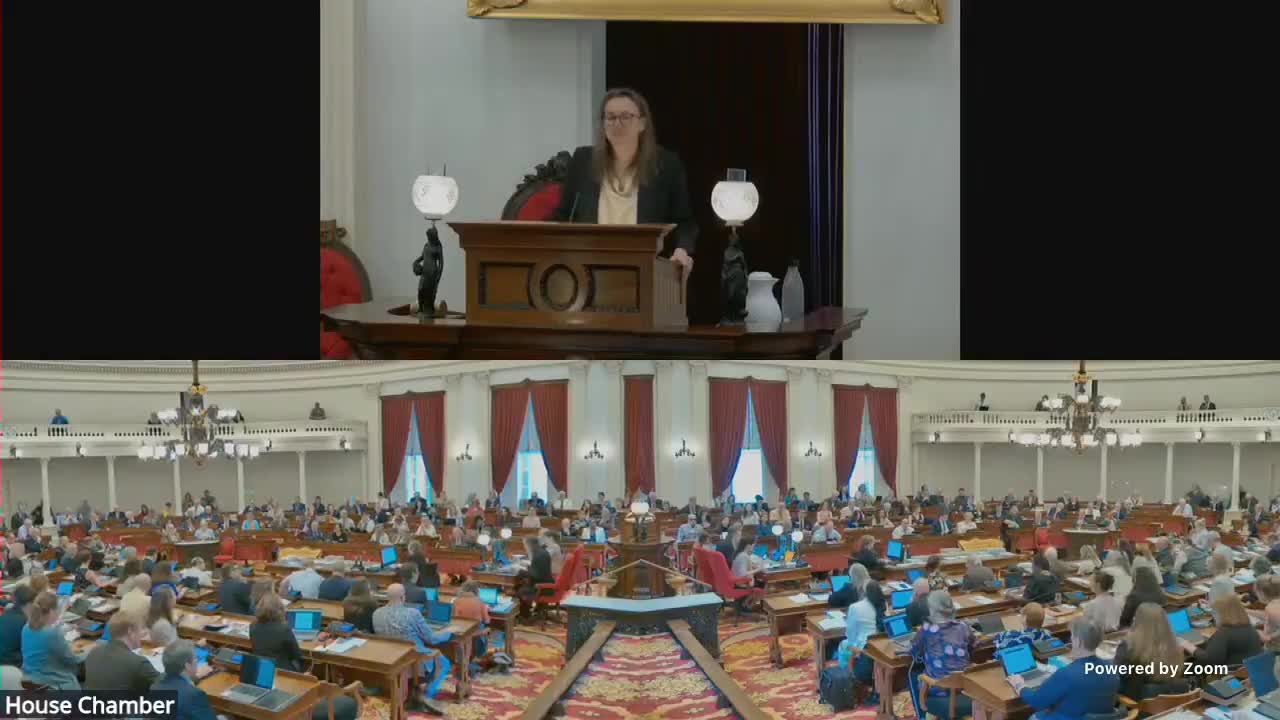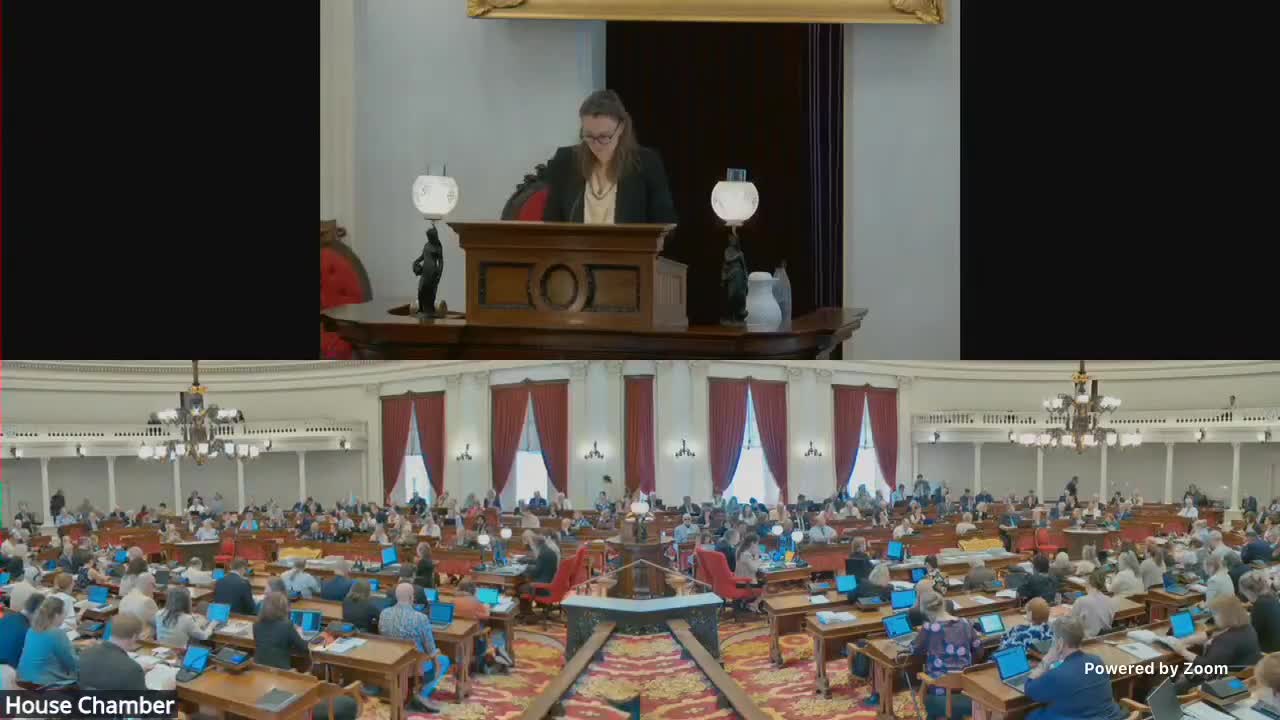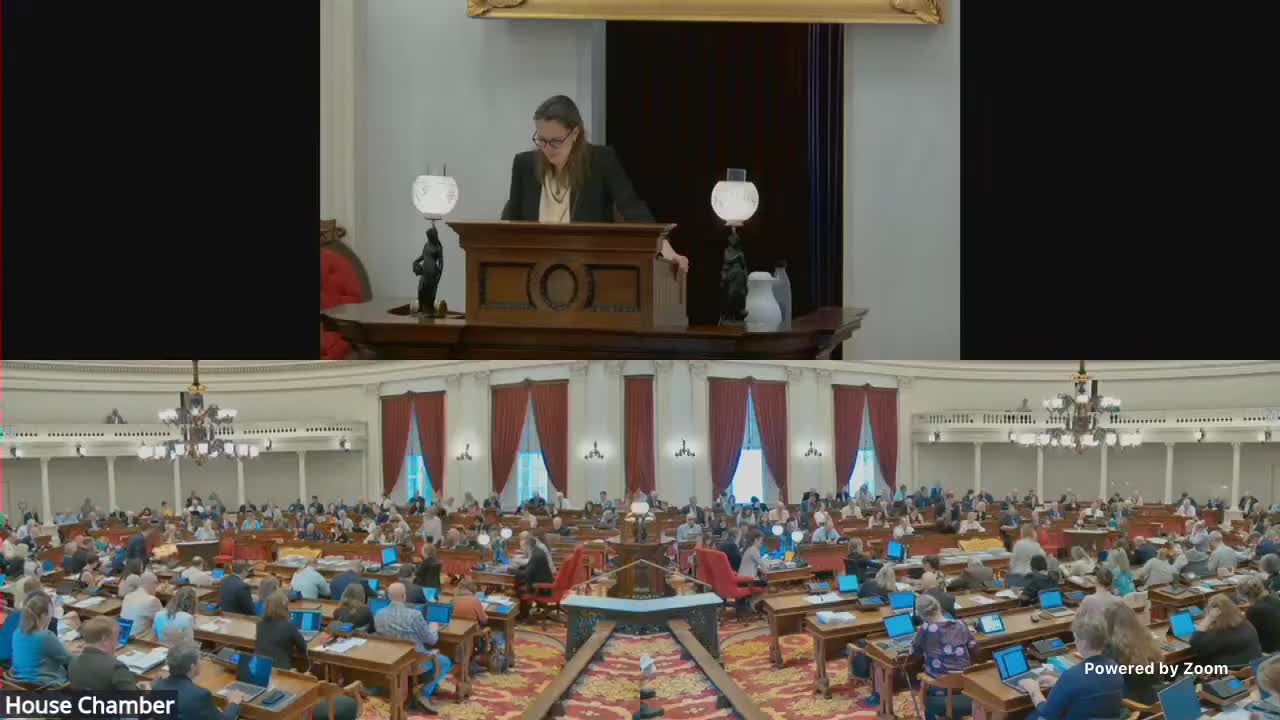Article not found
This article is no longer available. But don't worry—we've gathered other articles that discuss the same topic.

House sends prescription drug-pricing bill to governor after concurrence on effective date

House proposes amendments to synthetic-media bill, orders third reading after debate on disclosures and exemptions

House concurs in amended cannabis bill after committee changes, removes several new license provisions

